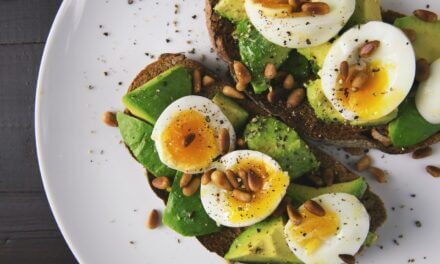Why Do We Crave Comfort Food During Stressful Times?

Never-ending pandemics and elections have you stress eating? You’re not alone.
It’s hard to say that food is simply for nutrition. Though we definitely need it to survive, food is also a token of love. It’s a focal point for gatherings; a reward for hard work. Food is culture and history and our childhoods folded into one transcendental bite of pizza or spaghetti.
And when we’ve reached our thresholds for stress, as is the case right now, these little bites ground us in our senses, transporting us to somewhere more ok than where we are. At least for a while.
Most of us say that eating comfort food makes us feel better. But scientists still can’t agree on who comfort eating works for, or if it even works at all. In fact, surveys have shown that comfort eating can incite guilty thoughts and feelings – especially in women – which can ultimately ruin our schemes for coping in the long run. [1]
Facts of comfort eating
First of all, eating makes us feel good. We’re driven by the chemical dopamine to want food based on sight or memory or smell. Then when we eat the food, our internal opioids and cannabinoids elevate depending on how much we like what we’re noshing on. [2] This happens every time we eat, and it’s especially true of the high-fat, high-sugar foods that we associate with comfort. [3]
Second, not everyone turns to comfort foods for the same reason. Professor Brian Wansink of the University of Illinois conducted a survey of over a thousand people and found that the majority turned to comfort foods not out of sadness or loneliness (39%), but out of happiness (86%). [4] Interestingly, the selected comfort foods based on happy feelings were generally healthier than those based on negative emotions.
(We have recommendations for when you’re craving comfort foods in just a sec!)
People also have very different ideas on what constitutes a comfort food. Men have different go-to foods than women – savory vs. sweet; and older people prefer foods such as soup and mashed potatoes compared to the ice cream and cookies of younger adults.
Overall, here are the top-ranking comfort foods based on Wansink’s survey:
- potato chips (24%)
- ice cream (14%)
- cookies (12%)
- candy or candy bars (11%)
- pizza and pasta (11%)
- beef or steak products (9%)
- fruits and vegetables (7%)
- soup (4%)
What makes a food comforting?
Though some foods seem decidedly not comforting (celery sticks, pieces of kale, etc.), it’s not entirely clear what makes one food give us more of the warm and fuzzies than another.
Potato chips are the opposite of soft, yet they’re the highest-ranked food on the list. Ice cream isn’t warm, but it’s second. Overall, though, energy-dense foods win out against anything related to the salad family – even though the latter may make us feel better about ourselves in the long run.
But there’s a comfort factor more powerful than the chicken fried steaks and country cream gravies of the food world. And that’s memory.
In his study, Wansink described food-based memories as “vivid, iconic instances one can flash on when thinking, tasting, or smelling the food.” He said that the feelings of “safety, love, homecoming, appreciation, control, victory, or empowerment” are what drive us to eat what we do. It just happens that more of us associate high-calorie foods with those positive feelings than healthier fare.
(It would be great if we watched football games with grapes and celery sticks…but that’s probably never going to happen.)
Are comfort foods worth it?
The answer depends on who you ask. If you’ve just eaten half a pie to quell your election anxiety, you might say yes. But according to some researchers, you’d fare just as well eating any other kind of food you liked – or even eating nothing at all.
In a 2016 study published in Health Psychology, participants who had watched negatively affecting films were given a comfort food one week followed by another liked food, a neutral food, or no food at all in the next week. Lead author H.S Wagner said that “comfort foods led to significant improvements in mood, but no more than other foods or no food.” [5]
The bottom line is that your decision to stress-eat or not depends on your goals.
If you’re really trying to lose weight or reach important health goals, there’s evidence that you’ll be comforted by time (or even grapes) if you opt out of that bacon-and-caramel topped cheesecake that’s been calling your name.
If you have a rocky relationship with food and aren’t sure whether you’d suffer more guilt in the long run, you may consider other ways to comfort yourself. We recommend guided meditations of any sort, a 5-minute workout you love, or accomplishing something that’s meaningful to you.
And since we’re Fasting.com, we’re definitely going to plug the stress-busting benefits of a fast:
- fasting is widely known to increase your cells’ resistance to stress – brain cells included
- time-restricted eating improves stress markers such as hypertension and low insulin sensitivity [6]
- and there are even fasting options that give you the stress-relieving benefits of a fast without having to completely forego eating.
No matter what stance you take on stress eating and comfort foods, just know that we’re all facing these decisions together and doing the best we can.





